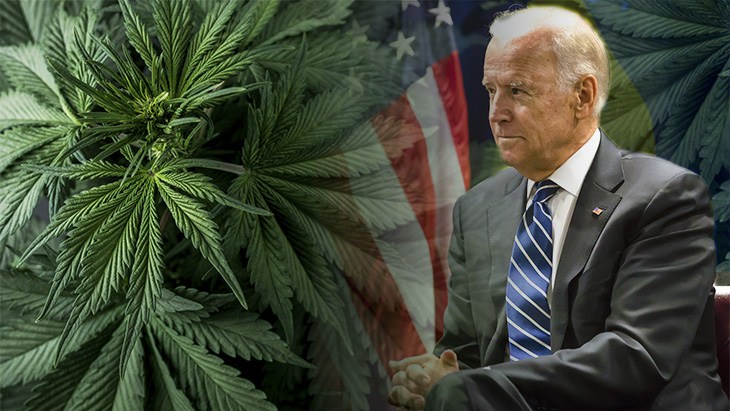For NORML’s 50th anniversary, every Friday we will be posting a blog from NORML’s Founder Keith Stroup as he reflects back on a lifetime as America’s foremost marijuana smoker and legalization advocate. This is the twenty-third in a series of blogs on the history of NORML and the legalization movement.
As we approach the 2020 Presidential election, it is fair to ask what this election means to marijuana consumers. Will the outcome of this Presidential election impact marijuana policy moving forward; and if so, in what way? Elections have consequences, and this election will surely have consequences for the marijuana smoking community.
We should start this discussion by acknowledging the obvious: everyone should register to vote. To fail to vote is to be part of the problem; not part of the solution.
A second point that must be acknowledged is the reality that, for most voters, marijuana policy is not their number one issue. While ending the federal prohibition of marijuana is important to those of us who smoke, it is a secondary issue for most other Americans. Questions surrounding how best to address the coronavirus pandemic, how to restart our economy, and how best to get Americans safely back to school and to work will undoubtedly influence how the majority of Americans ultimately decide to cast their vote.
However, for those for whom marijuana policy is the dominant issue, it is my personal opinion that a vote for the Democratic ticket is the obvious choice. While ending federal marijuana prohibition outright remains — at least at this time — a step too far for Democratic presidential candidate Joe Biden to embrace, he has in fact moved in our direction significantly since the days of his vocal support for “the war on drugs.” Biden now says he supports decriminalizing the personal use of marijuana, expanding medical cannabis access, permitting states to set their own marijuana policies absent federal interference, and expunging minor marijuana conviction records. That is a good start for an old drug warrior.

And importantly, Biden’s choice for vice-president, Sen. Kamala Harris, has fully embraced the need to end federal marijuana prohibition by removing it altogether from the Controlled Substances Act. Her likely impact on Biden’s eventual marijuana policy initiatives (which are clearly still evolving), as well as the not-unlikely possibility that she might be called to step up to the presidency (Biden is 78 years old) at some point, should justify most voters in this category to support the Democratic ticket.

By contrast, during his first term, President Trump has said little about marijuana policy. Yes, he has generally avoided picking a fight with those states that have legalized marijuana either for medical or adult use. But we also know that he initially selected former Alabama Senator Jeff Sessions, a life-long anti-marijuana zealot, as his first Attorney General, and stood by while Sessions revoked the Cole memo, an Obama-era DOJ policy pledging not to interfere with the implementation of state legalization laws. Sessions is obviously long gone from the Trump administration, but Attorney General William Barr is another traditional Republican cultural value warrior whom no one should trust on this issue.

As marijuana consumers, I believe that it is our responsibility not to let the perfect be the enemy of the good. We can live for now with Joe Biden’s marijuana policies, which largely seek to maintain and expand the successful inroads we have made at the state level. We know from current polling that two out of three Americans now support the full legalization of marijuana, and we can expect that is the direction most states will continue to move toward. In addition, potential changes in the make-up of the US Senate greatly increase the prospects of Congress passing The MORE Act and ending federal marijuana prohibition. Were Congress to do so, there is little chance in my opinion that a Biden presidency would stand in the way.
The bottom line is if one values the progress we have made in this country toward ending marijuana prohibition, now is the time to vote to not only protect those gains, but also to increase the likelihood of future victories at both the state and federal level.


